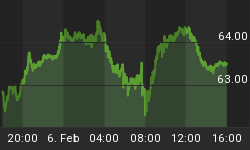I concluded a commentary in my July 13 Newsletter with the following statement:
"It is also why I have come to believe laws should be put in place to return the separation of commercial banking and investment banking, thereby segregating what are quite different risk profiles, and enabling a clearer path to fair regulation."
A recent article lists (with links to biographies) nine senior or former senior bankers, 10 economists, eleven financial experts, a U.S. Congressional Panel and the Bank of International Settlements who apparently agree.
By way of background, whether correctly or not, many people attribute the current state of the deregulated banking system in the United States to the 'repeal in practice' of the Glass-Steagall Act of 1933. Among other things, the Glass-Steagall Act dictated the separation of commercial banking from investment banking. The 'repeal in practice' of Glass-Steagall began in the early 1970's and gained a good deal of its ground in the late 1980's.
Simply put, irrespective of the environment that allowed it to happen, in retrospect conventional banks and 'financial markets' businesses should never have been allowed to merge. They are distinctly different businesses with very different risk profiles. Moreover, as combined businesses - banks and investment banks - they have grown in size and arguably have become 'too big to fail', while maintaining a form of oligopoly. That has resulted in large fees being earned and passed on to their executives in the form of bonuses and stock options, which in turn can be argued to have been to the detriment of their shareholders. This has happened in an environment where politicians of all sizes, stripes and party alliances have come to rely on donations to subsidize their campaigns. Such donations come at a cost of independence and objectivity.
Topical Reference: Numerous Top Bankers Call for Break Up of Giant Banks, from Zero Hedge, July 28, 2012 - reading time 3 minutes; and Failing to Break Up the Big Banks is Destroying America, from Washington's Blog, July 21, 2012 - reading time 10 minutes. Also see Let's Shatter the Myth on Glass-Steagall, from The Washington Post, July 28, 2012 - reading time 4 minutes.















